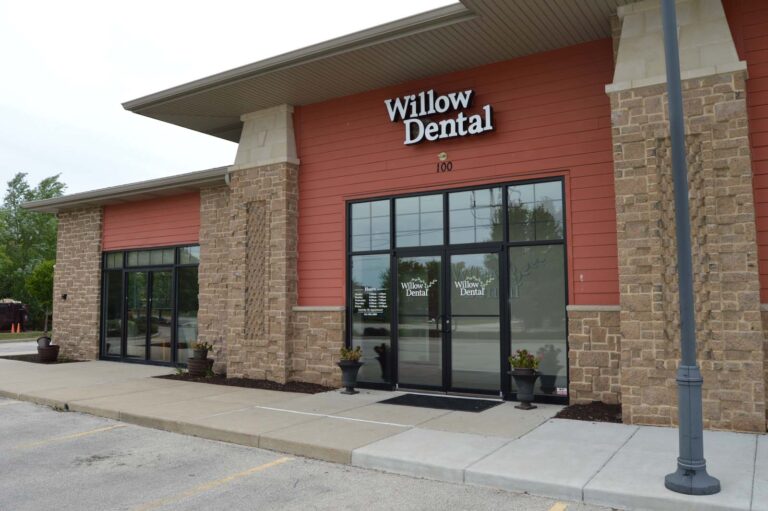Sleep Apnea
Sleep apnea is a serious sleep disorder that involves repeated interruptions in breathing throughout the night. We offer oral appliance therapy to help treat those suffering from sleep apnea.
Sleep Apnea Dentist in New Berlin, WI
At Willow Dental, we understand the critical nature of diagnosing and effectively treating sleep apnea. Our team is trained to recognize the signs of sleep apnea and offer specialized treatments that can alleviate symptoms and reduce the associated risks.
Common signs of sleep apnea include loud snoring, abrupt awakenings followed by gasping or choking, morning headaches, daytime sleepiness, and difficulty concentrating. If left untreated, sleep apnea can lead to significant health issues, including high blood pressure, heart disease, diabetes, and chronic fatigue, making timely and effective treatment crucial.

-
How do you know if you have sleep apnea?
Recognizing sleep apnea involves being aware of various symptoms that may indicate the presence of this sleep disorder. Here are key indicators that could suggest you have sleep apnea:
- Loud Snoring: While not all snorers have sleep apnea, loud and persistent snoring is a common symptom, especially if it is accompanied by silent pauses in breathing.
- Choking or Gasping During Sleep: Experiencing abrupt awakenings accompanied by gasping or choking is a strong indicator of sleep apnea.
- Excessive Daytime Sleepiness: Feeling unusually tired during the day despite having had what seems like a full night’s sleep can be a sign of sleep apnea. This symptom arises because sleep apnea disrupts your normal sleep cycle.
- Observed Pauses in Breathing: If a partner or someone else observes that you seem to stop breathing intermittently while you sleep, this is a significant indicator of sleep apnea.
- Morning Headaches: Regularly waking up with a headache can be linked to poor sleep quality and oxygen deprivation, which occurs with sleep apnea.
- Difficulty Concentrating During the Day: Cognitive issues such as memory problems, difficulty concentrating, or mood changes are also associated with poor sleep quality resulting from sleep apnea.
- Irritability or Mood Changes: Emotional instability or mood swings can sometimes be linked to sleep apnea.
If you experience one or more of these symptoms, it’s important to consult with our office, a healthcare provider, or a sleep specialist who can conduct further evaluations, such as a sleep study, to diagnose the condition accurately.
-
Can a dentist help with sleep apnea?
Yes, dentists play a crucial role in managing sleep apnea, especially for patients who can benefit from oral appliance therapy. At our office, we can provide custom-fitted oral appliances, which have been proven to be effective in treating mild to moderate obstructive sleep apnea by maintaining an open, unobstructed airway.
-
Do oral appliances for sleep apnea work?
Oral appliances are quite effective for many people with sleep apnea. These devices work by positioning the jaw to keep the airway open during sleep.
A mouth guard, specifically designed for sleep apnea, is an oral appliance that can help. It’s not just any mouth guard but one specifically designed to advance the jaw’s position slightly forward. This slight adjustment is often enough to keep the airway open during sleep, reducing or eliminating the interruptions in breathing that characterize sleep apnea.
They are a good alternative to CPAP machines, especially for patients who find them uncomfortable or inconvenient. Studies have shown that oral appliances can significantly reduce apneic events and improve sleep quality.
More Questions?
If you have more questions about sleep apnea, treatment options, or would like to schedule an appointment, contact our office, and we will be happy to discuss further.
